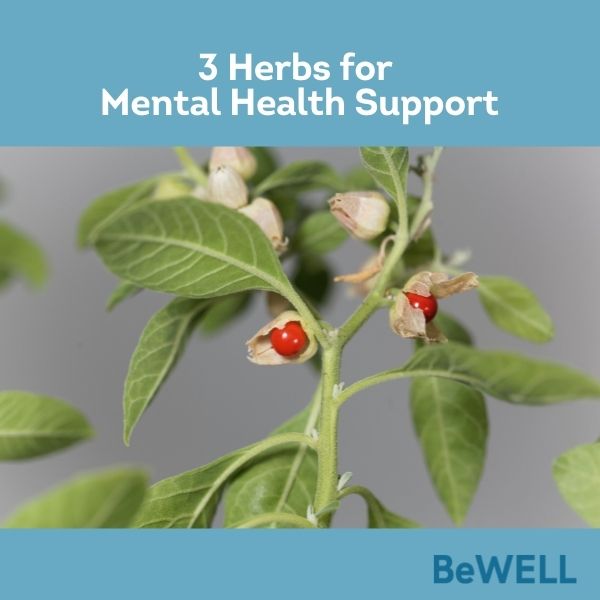By Jennifer Kurdyla
Ayurveda teaches that everything can be a poison or a medicine; in other words, the food that might be stressing us out can also be the key to our healing. By eating foods that nurture the gut-brain connection, we can powerfully affect the state of stress in our systems, which will support our ability to digest our food and get the nutrients we need from them to stay alive. But when eating becomes a source of pleasure to all of the senses—its taste, but also its color, aroma, and texture—we have more space to experience pleasure in other parts of our lives, too. And every bite of relief from the daily grind adds up, so that eventually there’s less on our plate that doesn’t taste good, and more that does.
It’s worth noting that our society creates a decent amount of stress around what and how we eat. Perhaps we’re concerned about our bodies looking a certain way, about following the latest fad diets, or even overly concerned with eating healthy. Perhaps an underlying condition associates food with discomfort, and we become hypervigilant out of fear of that potential pain. Perhaps we’re so busy we cannot take the time to eat mindfully, coupling environmental stress with digestive stress in a negative feedback loop that sucks our immunity and vitality dry.
No matter what the source of stress—internal or external (or both)—we can use food as medicine in order to bring the body back to a state of relaxation, where “rest and digest” is the main task rather than “fight or flight.” But when it comes to which foods support mental health, there’s tons of information on the internet that might lead you to think you need a pharmacy in your kitchen cabinet to eat yourself to calm. From superfoods to supplements, the wellness industry has turned health into a business, whereas Root & Nourish offers, from our experience and studies, a much simpler tactic. Eating whole, mostly plant, foods, properly cooked, in a relatively calm and mindful way, and with some space between meals, will keep the enteric nervous system clear and content, such that stress doesn’t become an unintentional ingredient in your diet.
Still, when we can use a little extra help for specific mental health imbalances, or in a chronically stressful time such as a global pandemic, we turn to a specific category of foods with more potency than our bread and butter: herbs and spices. These foods offer concentrated nutrition that the microbiome loves and, per Ayurveda and herbalism, a kind of energetic support because of their more subtle nature that has an affinity for both brains (gut and mind).
In Root & Nourish, you’ll find a thorough list of notable herbs and spices for mental health, but below are some of our favorites. In particular, these plants fall under the herbal categories of “adaptogens” and “nervines,” which both work by smoothing out the flow between sympathetic and parasympathetic mode in our bodies. Adaptogens are a very special, some might say magical, category of plants that work on the body in nonspecific ways—in other words, they have a unique intelligence to be able to land in the body, find what’s imbalanced, and provide whatever support is needed. They’re the ultimate stress-busters, but work on the body slowly, accumulating their potency over time, so you won’t necessarily see an effect after just one cup of tea. Nervines, on the other hand, can have a more acute effect in flipping the brain into parasympathetic mode. Taken together, the more immediate effects of the nervines and the long-term effects of adaptogens will allow your healing to take place at just the right pace for you. And in that time, you may discover some new truths about yourself, about what you like and dislike, and about the unique music your mind and gut can make when they’re playing from the same score.
It’s worth a reminder here that herbal cooking is not meant to be a replacement for medical care. If you or a loved one is suffering, please contact a mental health professional for the support you need to feel well. And if you are currently taking any prescription medications for mental health (or anything), please be sure to consult your doctor before adding medicinal herbs into your diet. While food and herbs can play a huge role in how we feel on all levels, diet is just one part of our beautiful and complex identity, and all parts of us need their own care.
Ashwagandha (Withania Somnifera)
Named after its unusual odor (the word ashwagandha means “the smell and strength of a horse” in Sanskrit), and known as Indian ginseng and winter cherry, ashwagandha is a prized member of the Ayurvedic pharmacopeia for its adaptogenic properties, which means it has the ability to support the whole system in a number of ways: as a stimulant that boosts memory, vitality, and endurance, or as a relaxant that promotes sleep and grounding. It’s also a potent aphrodisiac with an affinity to the male reproductive system, though all genders can benefit from its use. (Aphrodisiacs in Ayurveda simply mean herbs/foods that stimulate, or arouse, the system.) Typically it is taken as part of a warm milk tonic with honey and a pinch of cinnamon or nutmeg, and is more commonly consumed during the fall and winter months, as it has heating properties.
Reishi (Ganoderma Lucidum)
Adaptogenic mushrooms are becoming more and more popular these days, but reishi has been a favorite of herbalists for centuries. Easily grown in the U.S., reishi has a combined sweet-bitter flavor profile that relieves anxiety by lifting the spirits (sweet) and grounding the mind (bitter). It’s best taken in the evening to support restful sleep, but also has strong short- and long-term effects on the immune system, mental clarity, and is anti-inflammatory. While reishi is popularly known as the “king of mushrooms,” we think of it more as a queen.
Skullcap (Scutellaria Lateriflora)
Herbalism doesn’t always have an instant fix for health concerns, but skullcap is a noted exception. Known for its ability to bring comfort and calm to the mind during acute distress, this flowering plant has leaves that look like a soldier’s helmet (hence its name)—so you might think of it as your own internal defense system. Skullcap is used most often as a nervous system tonic to support frayed nerves, a muscle relaxant, and as a sleep aid. While both American skullcap and Chinese skullcap are members of the mint family, Chinese skullcap (Scutellaria baicalensis) is a different plant, which is more bitter and is used to support the liver and the immune system.
You can find these herbs at Anima Mundi Herbals or Mountain Rose Herbs.



